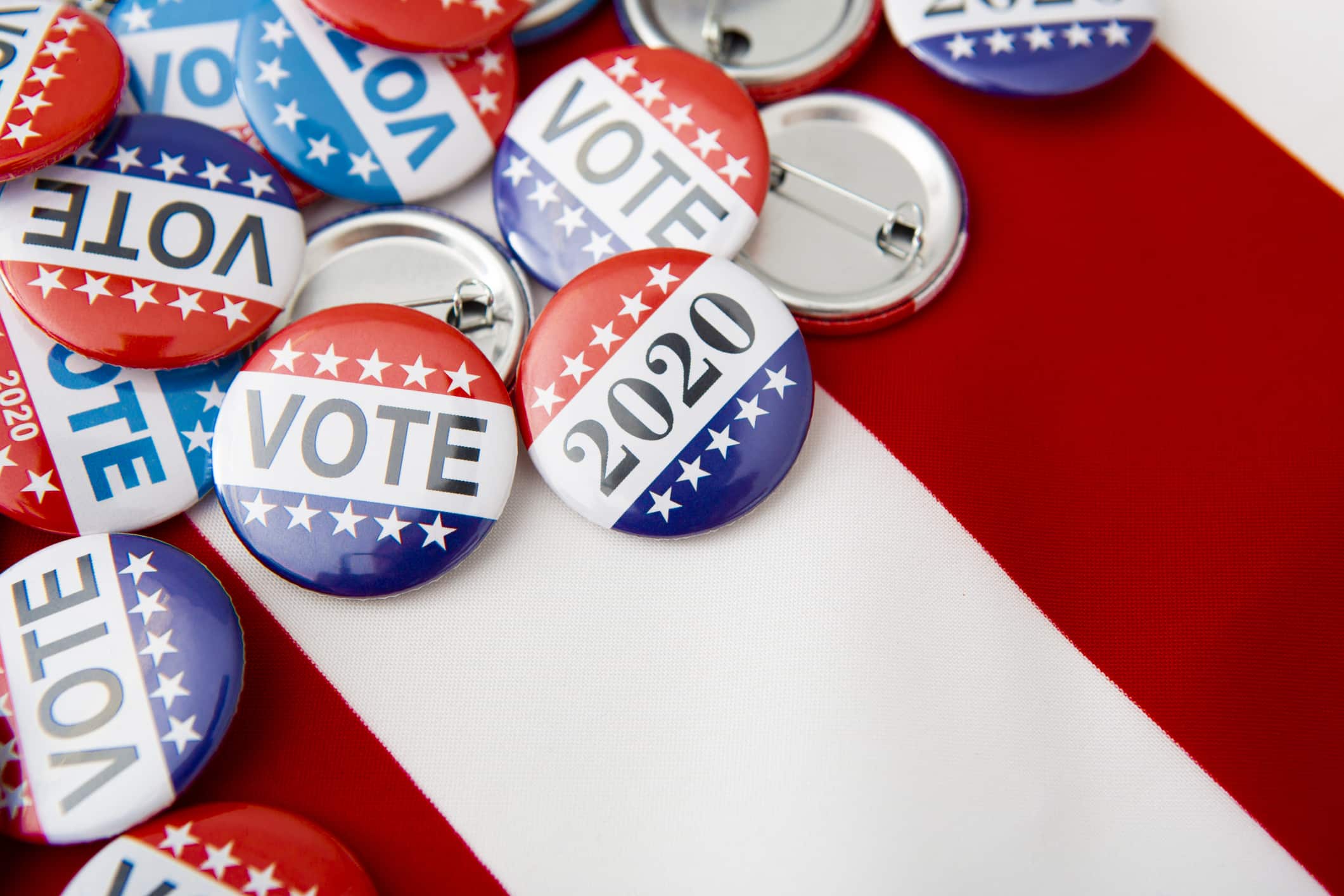The final Emerson College/7 News Iowa poll finds Senator Bernie Sanders with a solid lead going into Monday’s caucus with 28% support. Former Vice President Joe Biden follows with 21%, former South Bend Mayor Pete Buttigieg is at 15%, Senator Elizabeth Warren is at 14%, and Senator Amy Klobuchar is the only other candidate in double digits with 11%. Data was collected from January 30 – February 2, 2020, mixed-mode, n=853, margin of error of +/- 3.3%.

This represents a slight shift from last week’s Emerson College/ Channel 7 poll of Iowa; Sanders has dropped two points, Buttigieg has gained five points, and Warren picked up three points. Biden’s support was unchanged and Klobuchar has lost two points.
Sixty-six (66%) percent of likely Democratic Caucus-goers will definitely vote for their candidate, but on the eve of the Iowa Caucuses, 34% say there is still a chance they could change their mind, and vote for someone else. Sanders supporters are most solid in their support, with 74% saying they will definitely vote for Sanders. Sixty-nine percent (69%) of Buttigieg supporters have made up their mind, followed by 68% of Warren supporters and 66% of Biden supporters. Forty-five (45%) percent of likely Caucus-goers made up their mind over a month ago, 26% made up their mind in the last month, 15% made up their mind sometime last week, 11% made up their mind in the last few days, and 3% said they made up their mind that day.
Yang’s supporters are the most recent in deciding on their candidate, with 10% recently settling on Yang. Eighteen percent (18%) of Klobuchar’s supporters have decided in the last three days, while 23% said sometime within the last week. Warren, Buttigieg, and Yang share the same percentage of supporters who settled on their favorite candidate within the last week (12%). In contrast, Sanders has the longest term supporters, with 59% choosing the Vermont Senator over a month ago.

Respondents were also asked about their second choice candidate. Among Warren supporters, 46% chose Sanders, and 25% chose Klobuchar. Of Buttigieg supporters, 30% picked Klobuchar, 22% picked Warren, 19% picked Sanders, and 18% picked Biden. And of Klobuchar supporters, 41% had Biden as their second choice, 26% had Warren and 23% had Buttigieg.
The key to Sanders’s lead is his overwhelming support among young voters, as he garners 45% support among 18-49-year-olds. Following Sanders is Buttigieg and Warren with 15% and 14% respectively, and Biden with 7%. Among voters 50 and over, Biden leads with 33% support, followed by Klobuchar at 18%, Buttigieg at 14%, Warren at 13% and Sanders at 12%.

Another factor in Sanders’ lead is his strength among “very liberal” voters. He leads that group with 46%, followed by Warren at 21% and Biden at 12%. Sanders has a smaller lead among “somewhat liberal” voters with 25%, compared to Biden at 20%, Buttigieg at 19% and Warren at 17%. Biden holds a lead among “moderate” and “conservative” voters with 28% support, following him is Sanders at 18%, Buttigieg at 15% and Klobuchar at 13%.
In the first district, Sanders and Biden are close, with 22% and 21% support respectively. Warren and Buttigieg both reach viability with Warren at 17%, and Buttigieg at 15%. In the second district, Buttigieg is viable with 15%; Sanders received 28% and Biden 24%. In the third district, four candidates reach 15%: Sanders leads with 26%, followed by Biden with 19%, Warren with 16% and Buttigieg with 15%. And in the fourth district, Sanders leads with 36%, followed by Biden at 21% and no other candidate reaches 15%.
Research Assistant Brendan Kane notes that “an important thing for Sanders’ campaign is how Warren’s support varies across the state. Sanders is the second choice of nearly half of Warren supporters, and she is right on the edge of the 15% viability threshold in the first, second and third congressional districts, compared to the fourth district where she is at just 6%.”
There is also a divide along the lines of religious affiliation, as Biden leads among Protestants with 28% support, and among Roman Catholics with 30% support. While among Atheists/Agnostics, Sanders leads with 39% and among respondents who answered none, Sanders leads with 41% support.
Seventy-eight percent of Democratic Caucus-goers said they had previously attended an Iowa Democratic Caucus as compared to 22% who said they had never before caucused. Among those who have not attended a Democratic Caucus in Iowa, 22% plan to caucus for Sanders, 21% for Buttigieg, 17% for Biden, 16% for Warren, and 6% for Yang.
Voters were also asked which parent was the primary breadwinner in their household growing up; 53% reported it was their father, 15% said their mother, and 29% had both parents working. Among those who said the father was the primary breadwinner, 26% support Biden in the Democratic caucus, 21% support Sanders, 14% support Buttigieg, and 14% support Warren. Of those who lived in a household with the mother being the primary breadwinner, 43% support Sanders, 25% support Buttigieg, and 14% support Warren. Sanders also leads with 27% among those who had both parents working, followed by Biden with 20% and Warren with 13%.
When asked if they would still support the Democratic nominee in the general election, even if their preferred candidate did not receive the nomination, 76% said yes. 6% said no, and 18% said it depends on the nominee. Among the top candidates, 90% of Biden supporters will support the nominee, followed by 88% of Buttigieg supporters, 85% of Klobuchar supporters, 84% of Warren supporters, as compared to only 62% of Sanders supporters who vowed to support the eventual nominee. Thirty-two percent (32%) of Sanders supporters and 16% of Warren supporters said that it depends on who the nominee ends up being.
The most important issue among those polled is health care at 32%, followed by social issues and the environment with 17%, the economy with 14%, and impeachment with 7%.
Sanders was seen as the candidate with the best environmental policy by 32% of respondents, followed by Warren at 16%, Biden at 13%, and Buttigieg at 11%.
Caller ID
The Iowa Emerson College poll was conducted January 30-February 2, 2020. The sample consisted of registered Democratic and Independent voters, n=853, with a Credibility Interval (CI) similar to a poll’s margin of error (MOE) of +/- 3.3 percentage points. The data was weighted based on gender, age, education, region, and based on 2016 turnout model. It is important to remember that subsets based on gender, age, party breakdown, ethnicity and region carry with them higher margins of error, as the sample size is reduced. Data was collected using an Interactive Voice Response (IVR) system of landlines only (n=288), online panels provided by Dynata and MTurk (n=310), and cell phone (n=255) only responses via opt-in text message.







